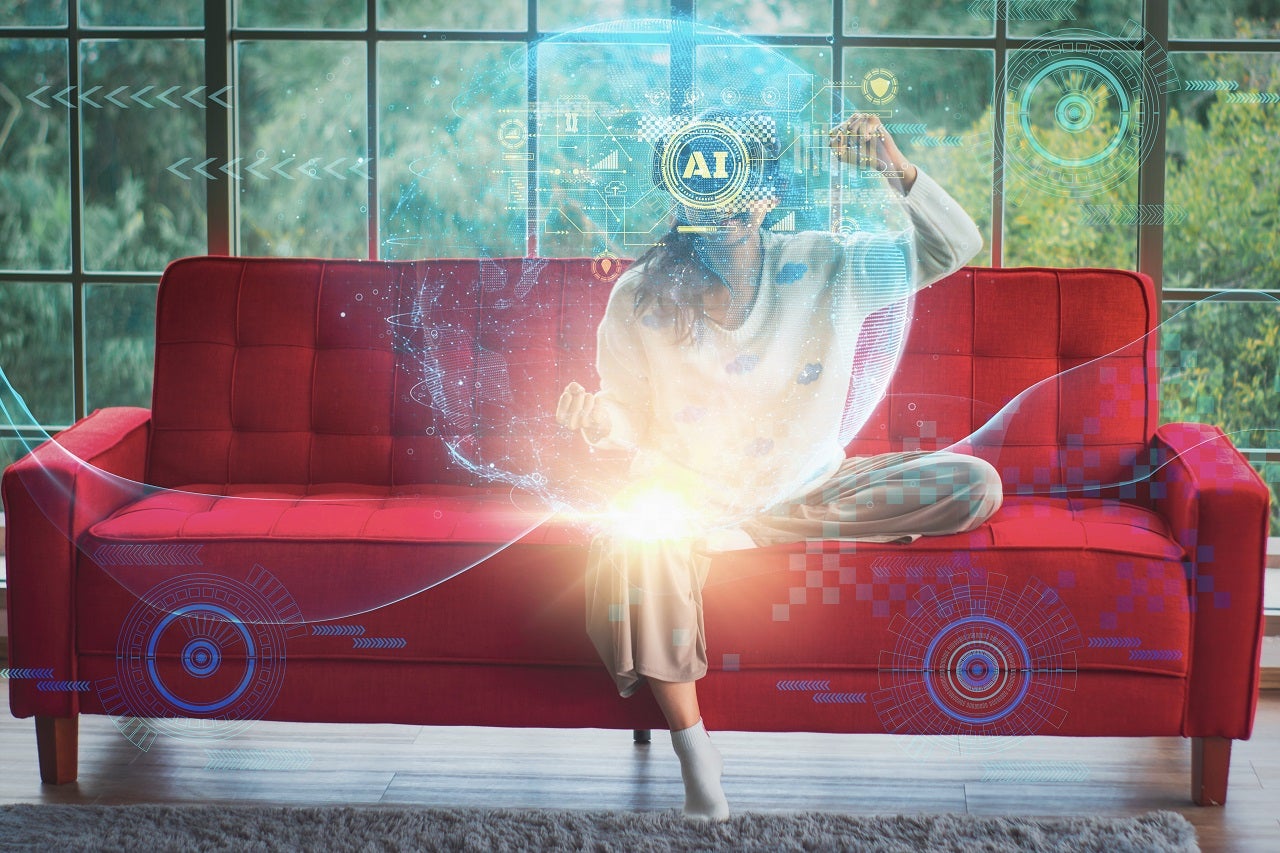Artificial intelligence (AI) is already ubiquitous in the video games industry, and the advent and maturity of generative AI tools signal the creation of unique and compelling experiences, alongside economic benefits, for game developers in the coming years.
The use of AI in gaming today is mainly focused on human-machine interaction
In gaming, the growing prevalence of AI technologies – particularly machine learning, context-aware computing, computer vision, and conversational platforms – across a range of genres enhances the intelligence of non-playable characters (NPC) and delivers richer gaming environments. For example, NPCs can allow gamers to play a multiplayer game without waiting for other human players. Call of Duty: Mobile offers a ‘Practice vs. AI’ mode, allowing gamers to perfect their technique and learn new skills by playing against bots. Machine learning tools study a player’s previous interactions with the game and NPCs and update the gameplay based on their approach and strategy.
Voice chat is a growing trend in games of various genres, primarily multiplayer titles, allowing players to communicate naturally in real time. Tools that use natural language processing (NLP) are gaining greater prominence as demand for voice-enabled communication, both between players and between players and fans (in esports), grows.
The arrival of generative AI will open a new paradigm of creativity in gaming
Generative AI allows game developers to procedurally generate content, meaning that gaming content will remain ever-fresh. Players will be able to enjoy a game for years and every time experience it as new. This system is seen in games such as Minecraft, where the virtual world is procedurally generated and players never run out of new things to experience. Likewise, No Man’s Sky uses generative AI to create a virtual galaxy with trillions of planets, each with unique terrain, weather, and ecosystem. Roblox is also testing a similar tool that will allow players to create virtual items (e.g., buildings, terrain, and avatars) by typing their requirements in natural language rather than complex code.
Generative AI tools are also capable of enhancing the intelligence of NPCs and changing the game world on the fly. Machine learning algorithms in games (e.g., Left 4 Dead and its sequel) help the game world adapt to a gamer’s behaviour and performance and accordingly adjust the difficulty levels and ambience. In Left 4 Dead, the ‘AI Director’ will throw more zombies at the players in moments of relaxation, as well as adjust the soundtrack and narrative cues for added tension, making the game more engaging and dynamic and keeping players on their toes. Similarly, games such as Spelunky and Slay the Spire use generative AI to randomize the game levels. This makes the user perceive every level as different, making each game session more unique than the previous and improving replayability.
Generative AI will be an influential force in the future of gaming but comes with risks
Generative AI will help game studios create infinite and personalized content for their users, and gaming companies and game engine providers will increasingly invest in no-code AI tools that use natural text prompts instead of complex codes. This could help game studios overcome a key challenge; the speed of game development. Generative AI will accelerate the creation of game prototypes, reduce testing time, and aid enhancement on the fly. Consequently, the number of studios is likely to record a boom, with fewer developers and more AI tools, which, in turn, will push the volume of games released per year.
How well do you really know your competitors?
Access the most comprehensive Company Profiles on the market, powered by GlobalData. Save hours of research. Gain competitive edge.

Thank you!
Your download email will arrive shortly
Not ready to buy yet? Download a free sample
We are confident about the unique quality of our Company Profiles. However, we want you to make the most beneficial decision for your business, so we offer a free sample that you can download by submitting the below form
By GlobalDataHowever, the advances in generative AI could also threaten the jobs of game developers to a concerning extent. Developers will need generative AI skills to land jobs. In addition, generative AI could expose new copyright issues, given that AI could use developers’ work without permission to create content. Gaming industry advocates must establish best practices to ensure developers are not undermined or replaced by AI systems. Generative AI is still in its infancy, currently enjoying hype, and has yet truly to prove its value in the gaming industry beyond a number of examples. It must deliver some not-seen-before benefits to game developers and gamers to attract adoption in the future.








